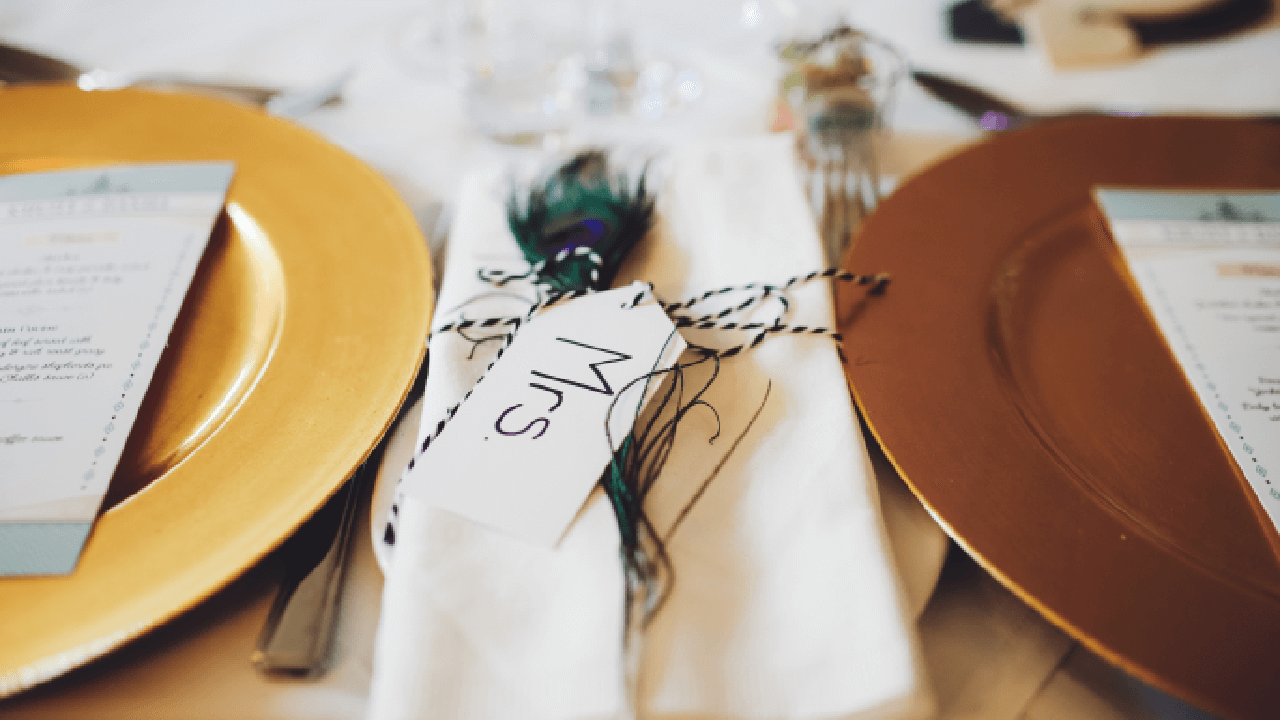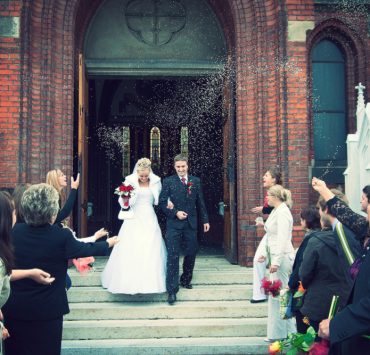When you get married, you have many decisions to make for the wedding: color scheme, venue, food, wedding entourage, and many others. But there are also decisions to be made after the big day. One of those will be whether or not you’re changing your last name after getting married.
Are you retaining your maiden name? Or do you want to carry your husband’s last name like a badge of honor? Perhaps you also want to know if husbands can take their wife’s surname? There’s no right answer that works for everyone and there are several things to consider.
In this article, we highlight what you need to know about changing your surname after marriage, including its advantages and disadvantages.
Is It Required to Change Your Surname After Marriage?
When Filipino women get married, they automatically think that they have to change their last name to that of their husbands’. However, this is just one of three options.
According to Article 370 of the New Civil Code of the Philippines, married Filipinas may use:
- Her maiden first name and her husband’s last name
- Her maiden first name and last name hyphenated with her husband’s last name
- Her husband’s full name with a prefix such as “Mrs.”
This law basically states that women don’t need to carry their husband’s surname. It gives Filipinas several choices, including keeping their maiden name after marriage.

Pros and Cons of Changing Your Surname After Marriage
It’s time to get down to the nitty-gritty. In the Philippines, there are many advantages and disadvantages of not changing names after your marriage. While you may not see the effects immediately, there are both good and bad points to consider for both your future and the future of your family.
Let’s dive right in!
The Pros of Changing Your Surname After Marriage
-
- It can make things simpler moving forward. Having the same surname throughout your family unit makes things more special and simpler at the same time, especially if you decide to have children. With the same surname, you’re more easily recognizable as one family. This can make things easier when you start dealing with schools, vacation trips, or avoiding awkward conversations with other parents. However, take note that there are instances wherein a new name can actually complicate some matters (as we’ll see later on).
- One name fits all. Personalizing decor items and monogramming home goods all become easier.
- You get a chance to modify your birth name. If for some reason you don’t like your original name, changing surnames after marriage is a quick and easy way to embrace change.
- It’s seen as a symbol of commitment. For many Filipinas, having the same surname as their husband fosters a sense of unity and family connection. Changing their last name is a significant and official symbol of their commitment to each other.
- It follows the norm. Whether Filipino women keep their maiden name or not, many people will assume that they changed it to their husband’s last name. This means other people might begin addressing you as “Mrs. ____” whether you like it or not.

The Cons of Changing Your Surname After Marriage
-
- You might feel like you’ve lost your identity. One of the major disadvantages of changing your name after marriage is that you may feel like you’re losing your sense of self or your identity. After all, you’re getting married, not becoming a different person. If your birth name contributes a lot to your self-identity, perhaps changing your last name might not be a good idea.
- You might run into legal complications. Changing your surname after marriage can complicate legal scenarios and document processes such as prenup agreements.
- It can go against your spouse’s principles. For some, changing surnames after marriage may go against feminist principles. After all, why does a woman have to change her name to that of her husband’s?
- No one will bear your original family name anymore. If you are an only child and the last in your family with your surname, you may not want to give it up to prevent its extinction.
- You might need to re-establish your reputation. If you are well-known in your field or industry, it may be hard to re-establish your reputation if you suddenly change your last name. Name recall is an actual phenomenon in business networking and you may lose a bit of your branding with a different surname, especially if your spouse’s name isn’t well-known.
While retaining your maiden name after marriage in the Philippines is not a very common practice, many women choose to keep their maiden name by hyphenating it with their husband’s surname.
Pros and Cons of Hyphenating Your Last Name After Marriage
In the Philippines, you have the option of hyphenating your surname with your husband’s surname after marriage. To help you determine if it’s the right choice for you, here’s a list of pros and cons.
Advantages of a Hyphenated Surname After Marriage
-
- You still keep your name. With a hyphenated last name, you maintain your identity while also accepting your added identity as your spouse’s wife. Your friends, clients, and colleagues won’t lose track of you after you get married.
- You honor your family legacy. Hyphenating is a good option if you have an influential last name or if you’re the last in your family to carry the surname.
- You get to keep your professional identity. Hyphenating is great if you use your current last name for your career. For instance, are you a lawyer, doctor, or business owner? If so, it may be best to keep your last name and hyphenation can help you in this regard.

Disadvantages of Hyphenated Surname After Marriage
-
- You’ll have a long name. Having a hyphenated surname after marriage in the Philippines means you’ll have a long last name. You’ll likely find yourself in situations where you’ll run out of space when filling out your surname on paper and online forms.
- It will be complicated for some people. If you become inconsistent with using your hyphenated last name, you might end up confusing people. It’s best to always say your full hyphenated surname, be it in personal or professional settings.
- The name change process isn’t any easier. Hyphenating your last name is considered a legal name change so you’ll still need to go through the entire process of changing your surname after marriage. This means updating all of your legal documents (passport, driver’s license, social security card, etc.) and personal accounts (bank accounts, credit cards, office IDs, etc.).
- You’ll have a different last name from your spouse and children. In Article 366 of The New Civil Code of the Philippines, a natural child acknowledged by both parents automatically uses the father’s surname. That means you and your children won’t have the same surnames unless your spouse changes their last name to a hyphenated one too.

In the Philippines, Can the Husband Take the Wife’s Surname?
A husband taking his wife’s surname is a unique, somewhat uncharted territory. Currently, there are no specific laws or regulations in the Philippines that explicitly allow or restrict this practice. It falls into a gray area — not exactly legal or illegal.
Technically, anyone can change their legal name, married or not. However, such a change requires a judicial order. This means going through official proceedings to alter one’s name in the civil register.
Advantages of the Husband Taking the Wife’s Surname
- For equality and progressiveness. This choice can be seen as a progressive step, challenging traditional norms and promoting gender equality in marital relationships.
- For family unity. In some cases, it can symbolize unity, especially if the wife’s family name holds significant cultural or familial value.
Disadvantages of the Husband Taking the Wife’s Surname
- There will be bureaucratic hurdles. The legal process for changing a surname can be long and complex, involving court proceedings and various administrative steps.
- You have to deal with social perceptions. In a society that often adheres to traditional norms, this decision might invite unwarranted attention or judgment from others.
Retaining Your Maiden Name After Marriage
What if you choose to retain your maiden name after marriage? In the Philippines, retaining one’s maiden name after marriage is a path that Filipinas are starting to embrace. Many women have kept their maiden names for various reasons — professional identity, personal preference, or even just love for their family name.
It’s important to know that it’s absolutely okay to keep your maiden name; after all, it’s a reflection of your individuality! Marriage is a partnership and how you choose to navigate your identity within it is entirely up to you and your partner.
However, it’s crucial to remember that regardless of your decision, you still need a change of marital status. This ensures your documents reflect your current legal status, which is important for official purposes such as tax filings, social security benefits, and in some cases, healthcare and insurance benefits.

To Change or Not to Change: Deciding on Your Surname After “I Do”
Changing or keeping your surname after marriage is a big decision. However, there’s no right or wrong answer.
It all boils down to your personal preferences and the mutual understanding between you and your spouse. If your partner doesn’t mind you not fully taking their surname after you get married, then go for a hyphenated surname or keep your given name. If you don’t want the disadvantages of not changing your name after marriage, then it’s better to go the traditional route.
No matter what you decide, be sure to listen to your heart and make the best decision for your situation after you’ve weighed the pros and cons of each option. Your name is a part of your story, and how you choose to tell that story is up to you.
Wondering what else you need to arrange once you get married? Feel free to browse Nuptials.ph for insights to guide you through the next chapter of your life!
Author: Anjenica Durana
Anjenica's biggest dream in life is to go on a great adventure. While still waiting for a tall wizard to knock at her door, or for a fairy to fly through her window, or for her grandmother to reveal their royal lineage (any time now), she works undercover as a writer who pretends to enjoy playing badminton.






